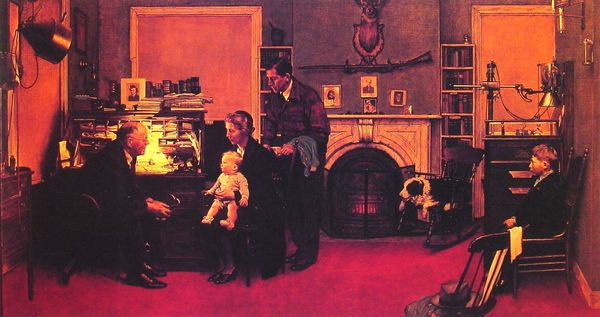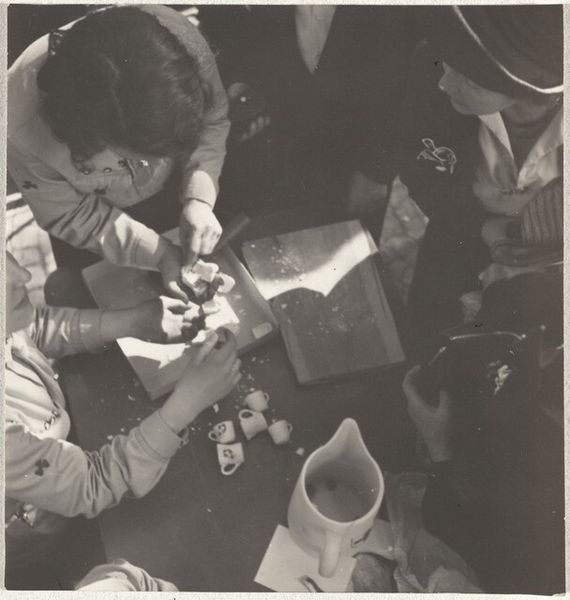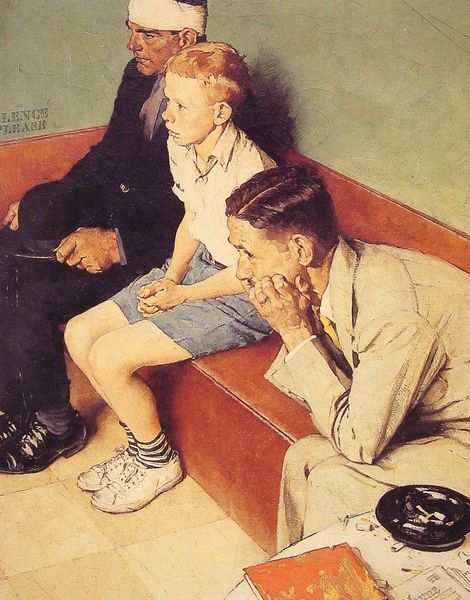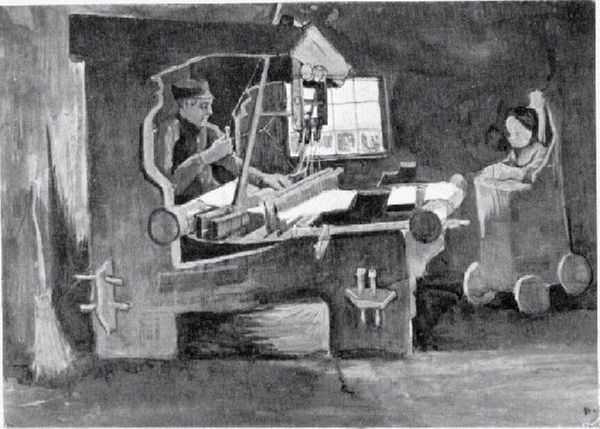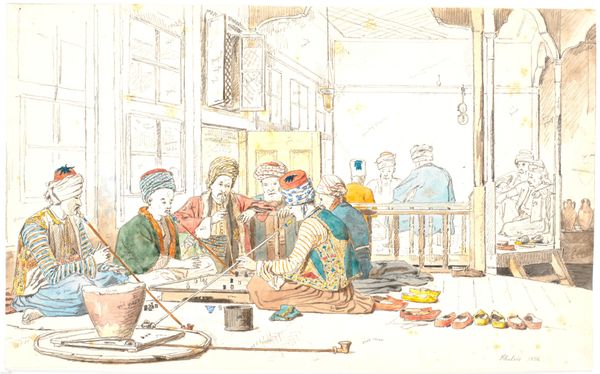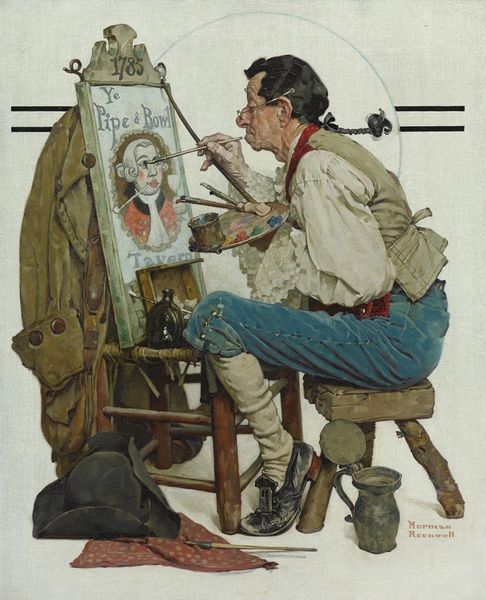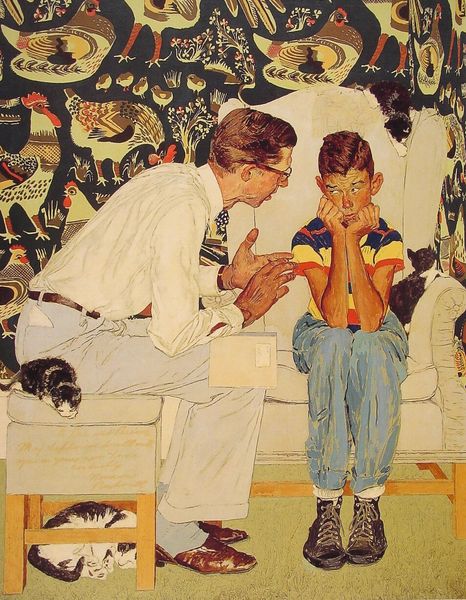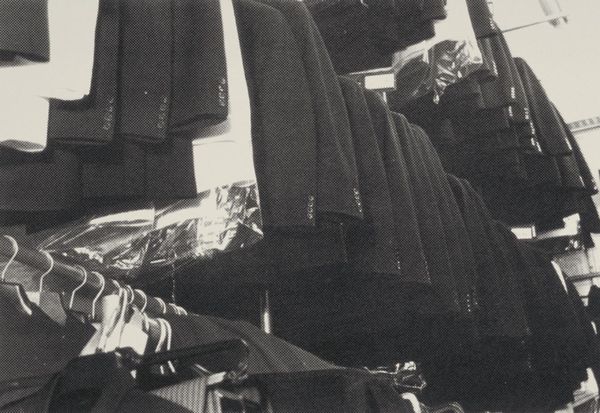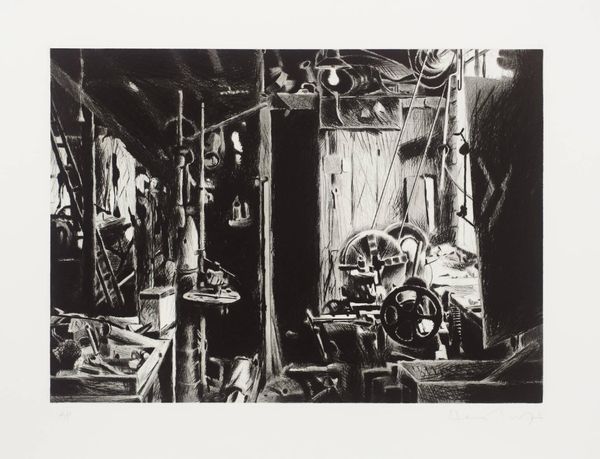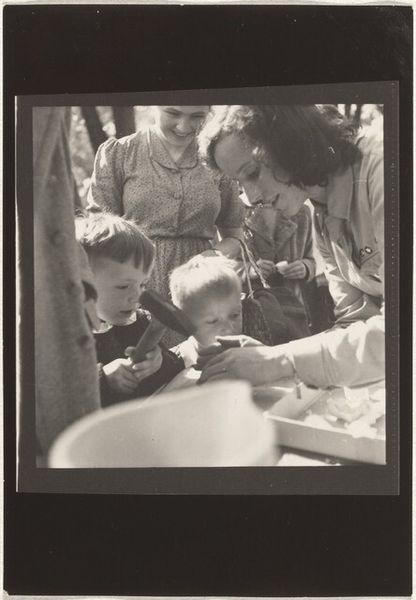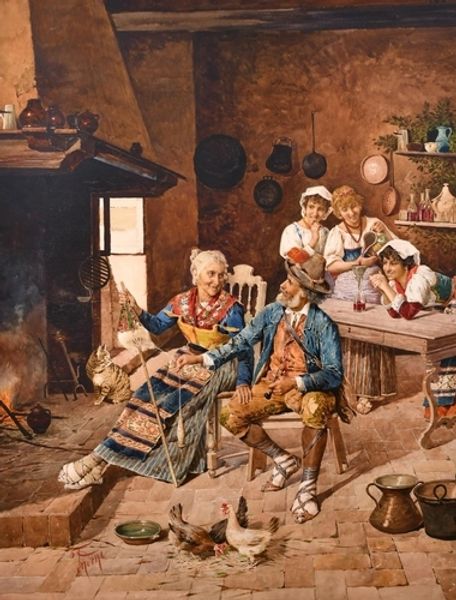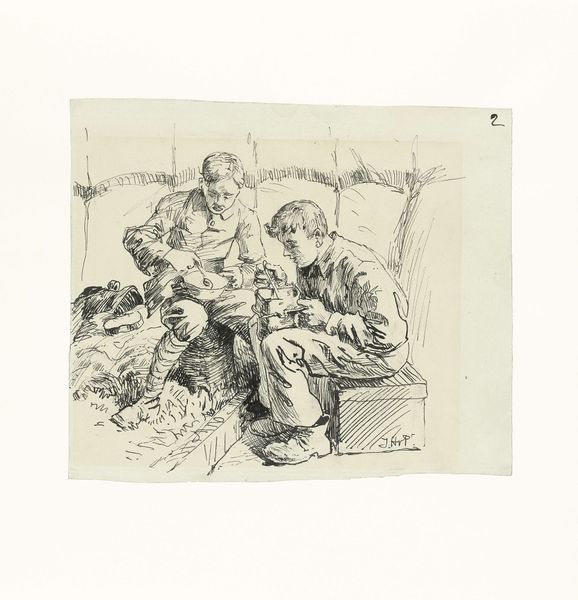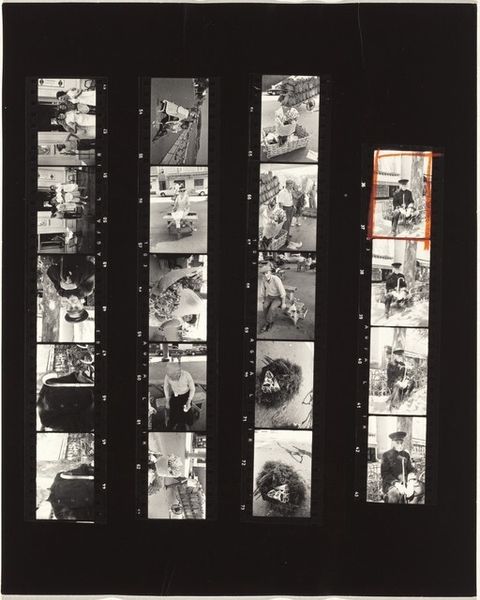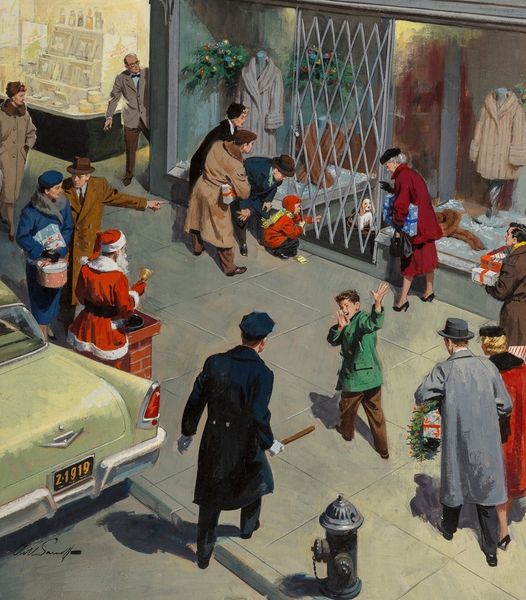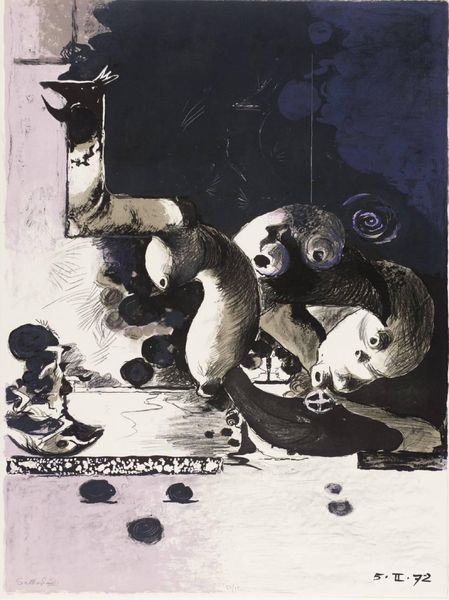
oil-paint
#
portrait
#
oil-paint
#
social-realism
#
oil painting
#
group-portraits
#
genre-painting
#
history-painting
#
realism
Copyright: Norman Rockwell,Fair Use
Curator: Norman Rockwell’s oil painting, "Homecoming Marine," from 1945, depicts a veteran's welcome in a civilian garage. Editor: It’s so… detailed, almost overwhelmingly so. You immediately sense a staged, idealized moment amidst the grimy reality of the setting, a very sentimental portrayal. Curator: Rockwell, ever the craftsman, really captures the atmosphere with his handling of the oil paint – the textures of the clothing, the grime on the tools. The artist pays close attention to surface details and objects as stand-ins for a sense of home, family, and country. Look at the grease and equipment - an intense snapshot of a specific materiality, time, and place. Editor: But also a constructed narrative, right? Consider the context. This piece emerged during the late stages of World War II. It serves to underscore American values of community, home, and the heroic return of service members, carefully crafted to reinforce a certain image of patriotism and reintegration at a pivotal moment in our nation’s social fabric. This contrasts with a time where people from diverse social backgrounds were unified through shared sacrifice. Curator: It absolutely reinforces those ideals. It's a classic example of how art served as propaganda, a cultural product promoting very specific social behaviors around labor and values. The composition, even with its apparent "naturalness," is constructed. The men clustered in a circle create a kind of fraternal bond of manual work, tools, metal, while Rockwell builds a sentimental narrative around shared work and war. Editor: Exactly, Rockwell's work must also be viewed in the broader sociopolitical context of post-war America. Beyond that, the way he carefully chooses what to portray– and perhaps more importantly, what *not* to portray. Think about the social position and experiences of African-Americans. In 1945, although they also made significant contributions to the war effort, their homecoming was very different. It reveals some deeply embedded American contradictions. Curator: I agree it reflects particular viewpoint; its craftsmanship, the surface of paint mimicking social values is an attempt to fix this moment. What feels so calculated? Editor: A need to create and celebrate the ‘Greatest Generation’. Curator: Well, looking closely at the handling of oil on canvas brings to mind just how loaded an image such as this one becomes, in our re-evaluation. Editor: Yes, art always benefits from reinterpretation as we continue to reassess our place in history.
Comments
No comments
Be the first to comment and join the conversation on the ultimate creative platform.
